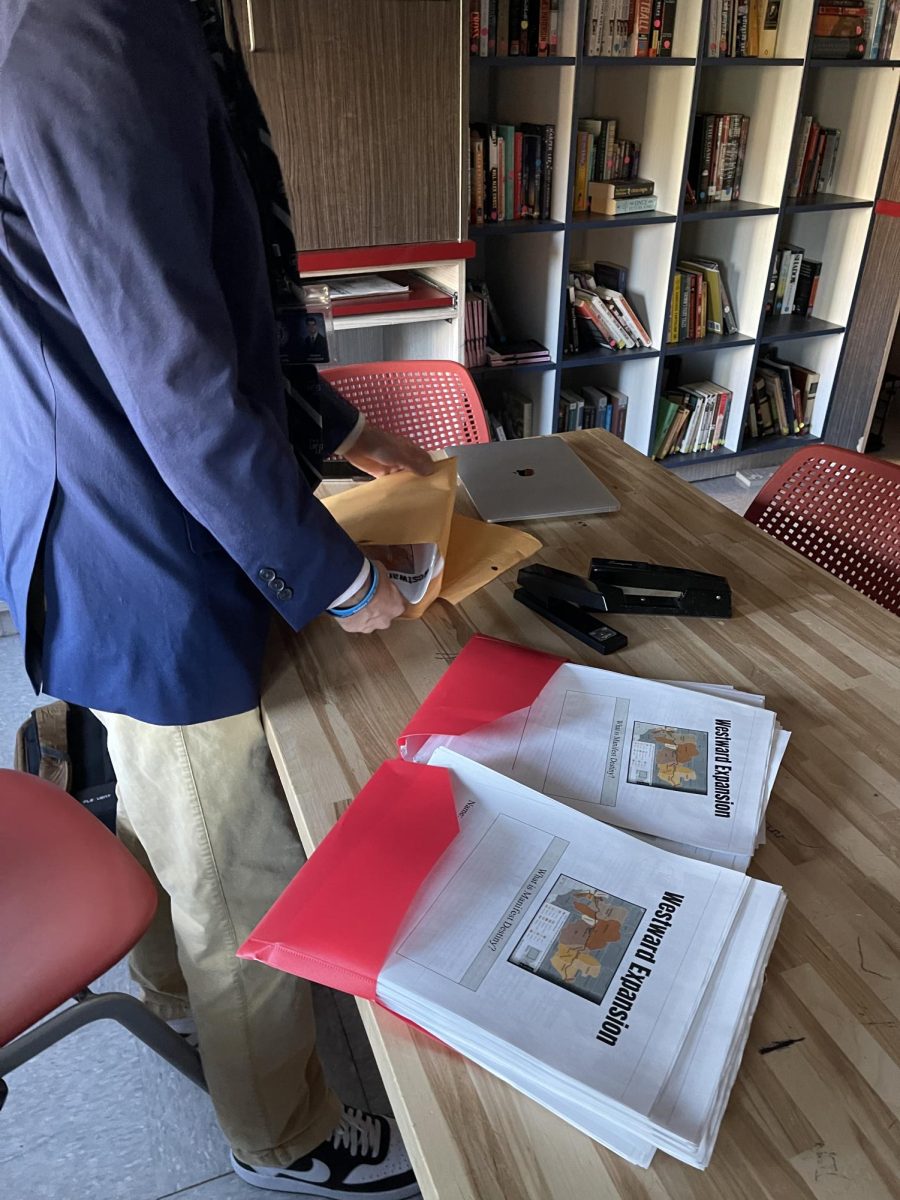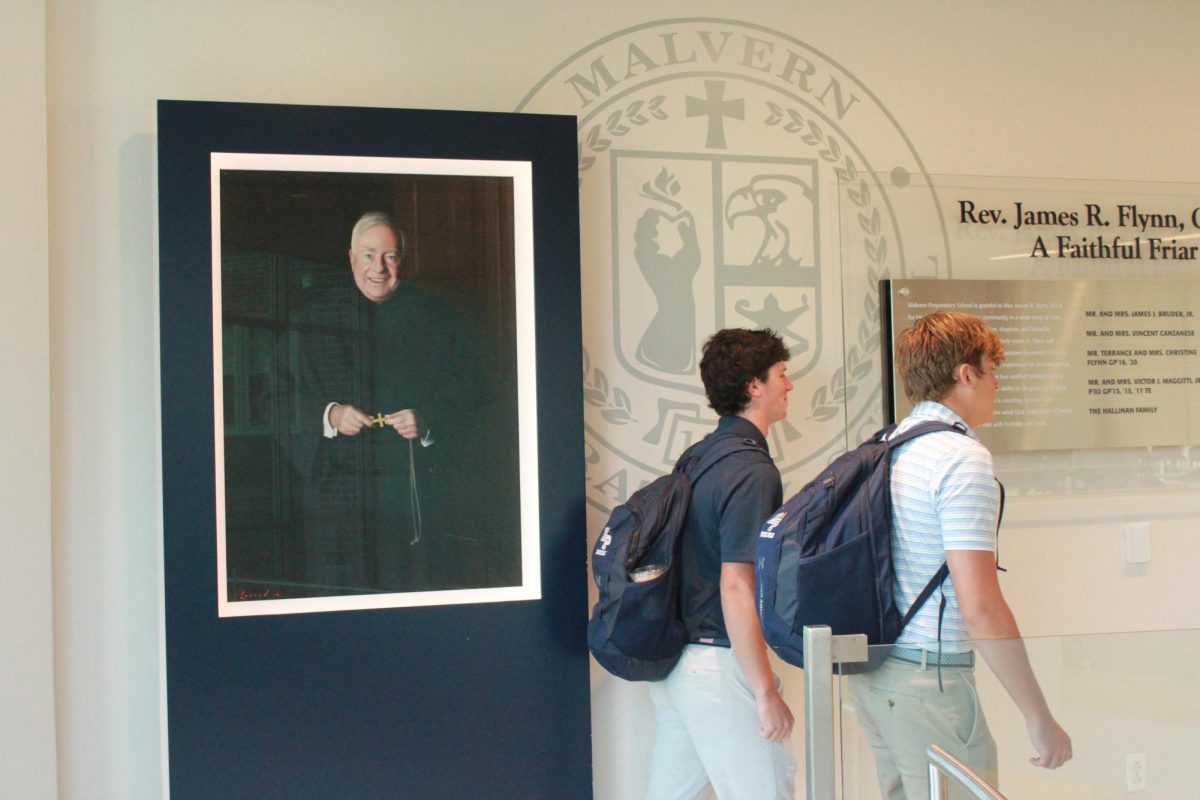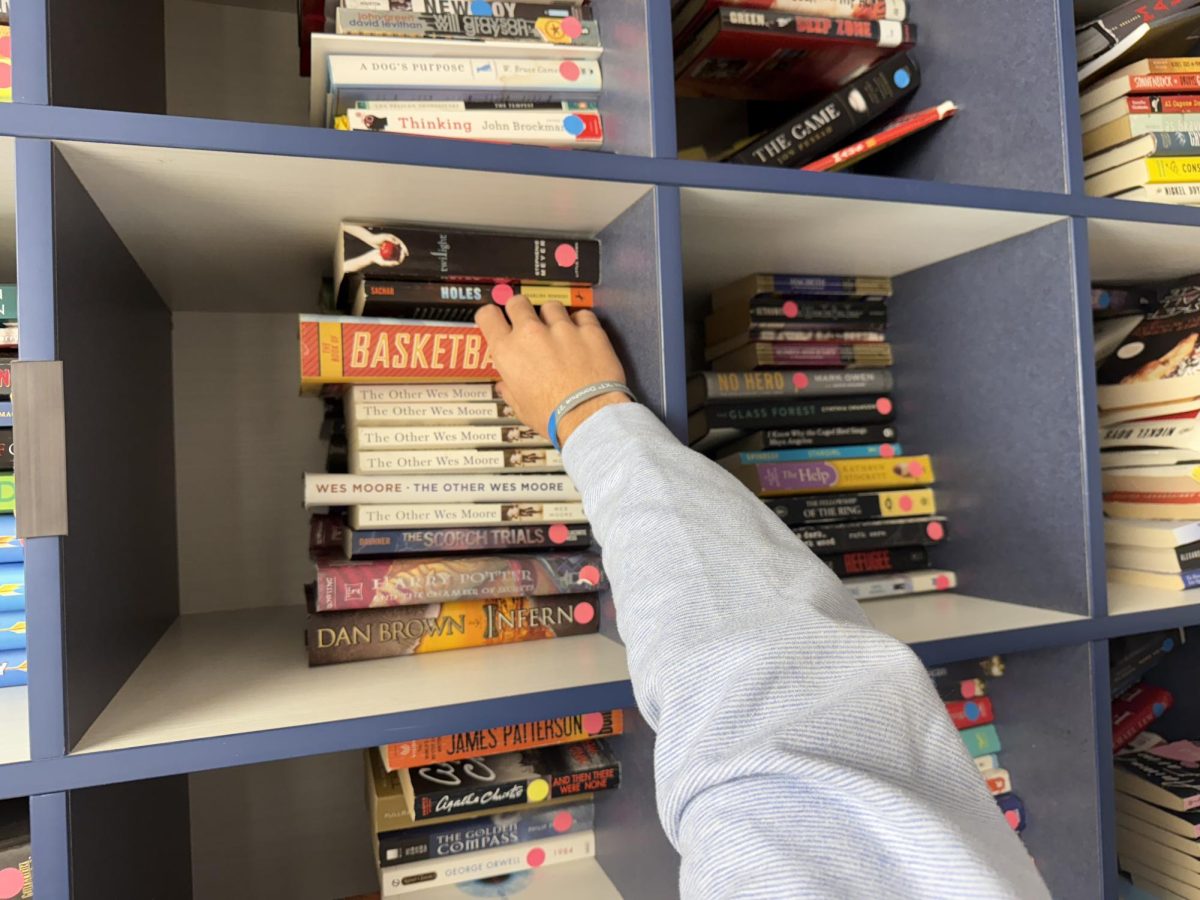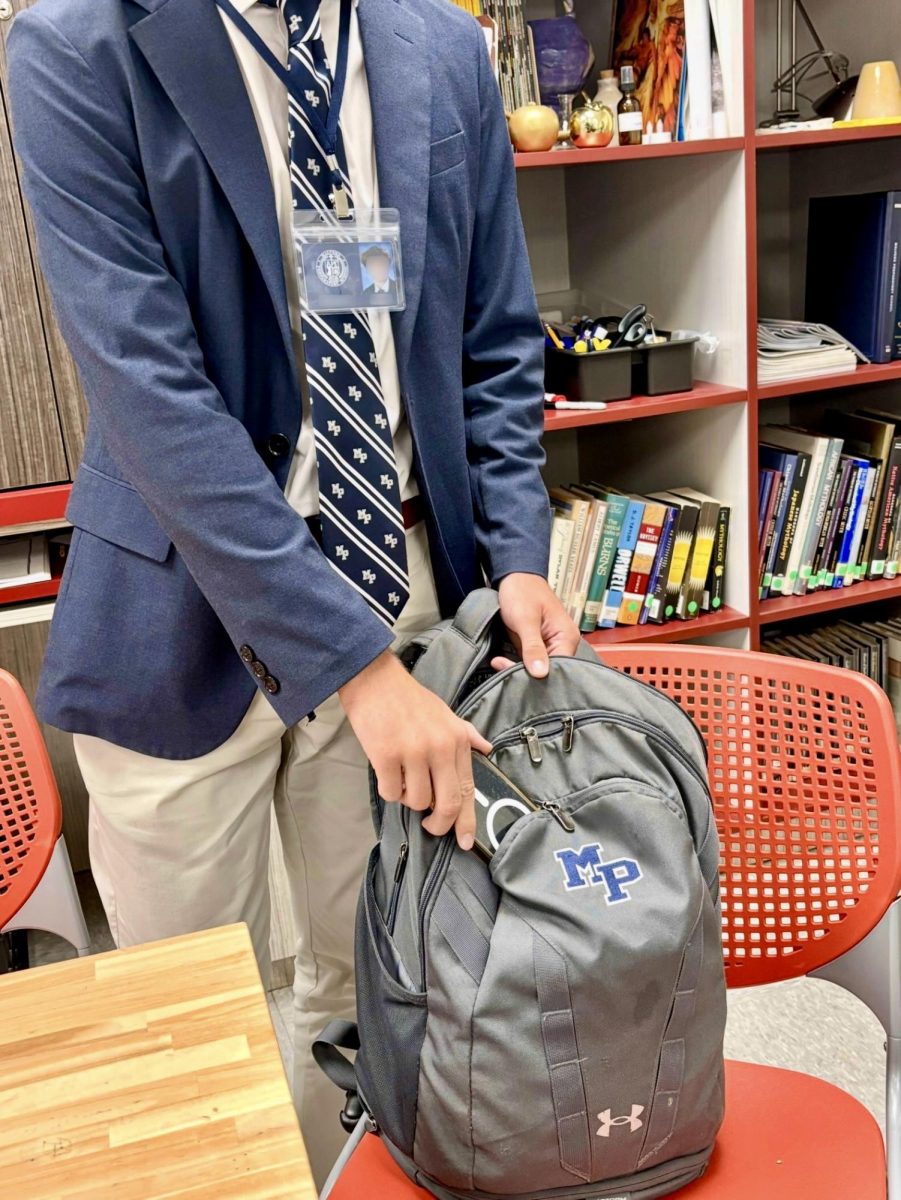Local experts on the topic of sexual assault came to Malvern during a “D” schedule assembly and shared their perspectives.
The topic of sexual assault is often difficult to talk about. However, an assembly for the upper school on April 29 addressed exactly that topic, from the perspective of several local experts.
Senior Justice Bennett fully organized the event that took place during a “D” schedule in the Duffy Center, according to Associate Director of School Counseling Mrs. Wuetig.
The assembly started off with a short video and an opening speech presented by Great Valley alumnus Maggie Kennedy, who founded the “No More” program at her school. The No More program is a campaign to raise public awareness and engage bystanders to help end domestic violence and sexual assault, according to its website.
[perfectpullquote align=”right” cite=”” link=”” color=”” class=”” size=””]“Drunk is not yes, asleep is not yes, a yes from last week is not a yes tonight, and a yes for your friend is not a yes to you.”
-Prof. Ann Juliano
[/perfectpullquote]
Kennedy explained that awareness and discussion is needed in order to stop sexual assault. She said that two-thirds of Americans have not discussed this problem of sexual assault with their friends and that three-fourths of parents have never discussed sexual assault with their children.
The goal of No More is to raise enough awareness about sexual assault until there is nothing to be aware about according to Kennedy. “No More calls on all of us to end the violence experienced by people of all genders, races, sexual identities, and age groups,” she said.
Following Kennedy, Assistant District Attorney of Chester County Michael Noone took the stage. He described himself as the “point person” for all sexual assault cases in the county, and he gave a story about his most recent sexual assault cases.
He told the true story of Jane (not her real name), a sexual assault victim whose case he recently handled.
Jane was a high school graduate at a typical party a week before she was going to college. She was going to study to be a nurse, something Noone says she was “very excited” about.
At the party, she met a young man whom she knew from high school. Noone explained that most sexual assaults occur between people who know each other beforehand.
Jane never flirted, kissed, or danced with this young man. According to Noone, they were just hanging out among friends at the party.
At one point, he stood up to a group a group of other men who verbally harassed her with sexual innuendo. He told them to stop, and this act earned her trust in him.
That would all change as the night went on.
Jane thought she could trust him to drive her to a friend’s house after the party. She got in his car, but instead of driving her to her friend’s house, he said he needed to do something at his apartment first.
He and Jane arrived at his apartment. He invited her to join him on the couch to watch TV before driving her home. Jane was getting nervous now, as it was two in the morning and she did not know how to get to her friends house from this location.
He shifted closer and closer to Jane, making her more and more uncomfortable. She told him to get away, but he would not. He jumped on top of her, took her clothes off, and raped her.
Confused and devastated, she ran out of the apartment to a nearby convenience store, where she sobbed uncontrollably. Someone there called the police, and she was taken to the hospital.
There, Noone explained, a sexual assault nurse examiner performed a meticulous examination of her body for evidence. The examiner had to clip her nails, comb her hair, and swab her mouth, vagina, and anus. The examiner asked Jane questions about the last time she had consensual sex, if she was menstruating, and if the man ejaculated and where.
This exam took an hour and a half.
A couple of days later, Jane met Noone, who told her what had to be done for trial. An initial hearing took place soon after their meeting, but the real trial only could take place around a year later.
[perfectpullquote align=”right” cite=”” link=”” color=”” class=”” size=””]“The most inspiring part of my job is also watching these victims overcome what has happened to them,” Noone said. “That courage is something we do not see often in our daily lives.”
-Assistant District Attorney of Chester County Michael Noone [/perfectpullquote]
Over that time period, Jane attempted to kill herself twice, fortunately failing both times. Noone thought that she would never make it through the trial, but she pulled through. Noone said that she was “excellent” on the stand as she described the rape to the court. Her perpetrator was sentenced to jail for “the better part of the next decade” according to Noone.
Noone explained that the perpetrator of the crime has to serve parole for at least as long as his sentence in jail, go to sexual counseling for the rest of his life, and to report under Megan’s Law for the rest of his life.
“You never want to be in the defendant’s chair,” Noone said.
Noone said he is often moved by the courage of sexual assault victims.
“The most inspiring part of my job is also watching these victims overcome what has happened to them,” Noone said. “That courage is something we do not see often in our daily lives.”
He gave a parting word of advice for Malvern students who may face a situation like this. “If you are wondering if it is consensual, then it is not consensual,” Noone said.
Next, Ann Juliano, a professor of Law at Villanova University who teaches a class on sexual discrimination, gave her expertise on the subject and how to avoid potential sexual assault.
Juliano noted that she was nervous about presenting at a Catholic school about this topic. She gave a disclaimer that she was not advocating for premarital sex or drinking below the age of 21.
There is a whole “continuum” of activities that need consent, according to Juliano. “Sexual assault is more than just intercourse. It is a whole range of activities,” she said.
Juliano explained to the Malvern students that any uncertainty about a yes means no.
“Drunk is not yes, asleep is not yes, a yes from last week is not a yes tonight, and a yes for your friend is not a yes to you,” she said.
Juliano said that the best way to make sure the answer is yes is to have a conversation. She explained that in her classes, many students initially think that this conversation could be awkward.
Her response? “A night of frustration is better than the potential for a non-consensual encounter and all of the consequences that flow from that, both for you and the other person.” Juliano said. “It’s 2016. If she wants to say yes, she’ll say yes.”
The next speaker at the assembly was Tisha Brown from the Crime Victims’ Center of Chester County which provides services, advocacy, accompaniment, and support to victims of all crimes, including sexual assault. Staff from the Crime Victims’ Center accompany victims to the type of examination Jane had to go through after her assault.
These examinations occur at any time, and Brown said she has left her son’s basketball championship game, Thanksgiving dinner, and Christmas wrapping to accompany victims of sexual assault during the examination.
She makes sure that the victims are okay, and asks them how they are doing every step of the way. She asks them questions like “Do you need a blanket? Do you need to take a minute? Do you need some water? Do you want to wait? Do you want to stop? Because you don’t have to do this.”
So, why would she drop everything in her life to help someone in this situation?
“We don’t believe that anyone who has been hurt by someone else ought to go through that alone,” Brown said. “We don’t believe that you should sit in that dark hospital room, undressing, alone, giving vivid details of what just happened to a complete stranger.”
Although Brown’s role is challenging due to her willingness to drop anything she is doing at any time and the emotional nature of situations, she said it is amazing to witness the victim take his or her power back.
“To watch Jane go from a sobbing mess, suicidal thoughts, to saying ‘you know what? He will not get away with this. He will account for what he did,’” Brown said. “That is why we provide that support.”
[perfectpullquote align=”right” cite=”” link=”” color=”” class=”” size=””]“You have, not only a right, but a responsibility to call people out. You have a responsibility to ensure that it does not happen anymore.”
-Tisha Brown, Crime Victims Center of Chester County[/perfectpullquote]
Brown explained that prevention and education also are major goals for their organization. They aim to change people’s mindsets on sexual assault, and make sure they know that it is never okay to let it happen.
A change in mindset leads to a change in behavior, and Brown called for the students of Malvern to end any culture of sexual assault in their lives. She challenged students to not participate in rape jokes of any kind, and stated that this would lead to a positive ripple effect.
When a positive example spreads, it is easier to take action against any instances of sexual assault that one may witness as a bystander.
“You have, not only a right, but a responsibility to call people out,” Brown said. “You have a responsibility to ensure that it does not happen anymore.”
Theology teacher Mr. Drew Zagursky came to the stage as the last speaker to share his final thoughts on the assembly.
He told the Malvern students that the Catholic faith calls on them to respect all women, like Jesus did for his mother, Mary.
“What type of man are you going to be? What type of husband are you going to be?” Zagursky said. “Jesus makes it very obvious that the husband, like he does for his spouse, the Church, has to be willing to die for his bride.”
Zagursky wanted the Malvern students to think about and remember this assembly. He called on them to live by the highest standard of respect.
“You are Malvern men,” Zagursky said at the conclusion of the presentation. “You are called to a standard that is hopefully being instilled in the most Christian way.”
Bennett thought the presentation was a success, judging by the reactions he heard around him.
“I think people have said that it was very educational and necessary on campus,” Bennett said. “I have definitely heard that a lot from faculty members.”
Bennett addressed one concern that he thought many students had about the assembly.
“I think one of the things students are concerned about is false accusations,” Bennett said. “But I think that in talking with the speakers afterward like Professor Juliano and Mr. Noone that it is really not as much of a problem as people think.”
Sophomore Scott Sander thought the assembly was a little lengthy, but it confirmed what he already knew about sexual assault.
“This presentation did not change the way I think about sexual assault, as it really only confirmed what I had already believed,” Sander said.
Sophomore Alex Strimel will remember Noone’s story of Jane the most.
“I feel this story helped to further underline the seriousness of the crime and highlight the reasons of why sexual assault is a terrible offense in our world,” Strimel said.
The assembly shifted Strimel’s thinking.
“This assembly changed my thinking on sexual assault by highlighting the many aspects of the crime,” Strimel said. “This crime’s consequences create a ripple effect which greatly affects everyone involved.”






